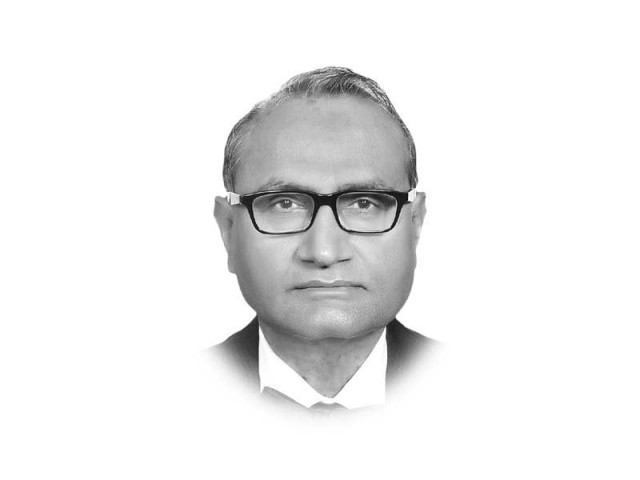Avoidable recentralisation
There is no denying that the federal government has a problem

The writer is a senior economist. He can be contacted at pervez.tahir@tribune.com.pk
The first hints of the desire to recentralise came from the misgivings about the 7th NFC award and the financing difficulties of the federal government. The miltablishment has felt the strain from day one. Donors, used to one-window operation in the security of Islamabad, were also unhappy. Lately, the IMF has joined the band. Instead of making the next award, the PML-N found it safe to continue with the existing award. Let it be said that the federal share in the divisible pool of taxes was reduced from 55 per cent in 2009-10 to 42.5 per cent since 2011-12. In effect, the share was further reduced by the assignment of one per cent of the net proceeds of divisible pool to Khyber-Pakhtunkhwa for expenses on war on terror, protection of the projected share of Balochistan and continued funding of vertical health programmes and the HEC.

There is no denying that the federal government has a problem. But to hold the provinces responsible for it is a bit of a stretch. The 7th NFC framework required the federal and provincial governments to “streamline their tax collection systems to reduce leakages and increase their revenues through efforts to improve taxation in order to achieve a 15% tax to GDP ratio by the terminal year ie 2014-15.” While the provinces trebled their contribution from 0.4% to 1.2 % by 2017-18, the federal government inched from 8.9% to 11.8 % of GDP or by 33%. The total remains 13% of GDP, less than the target that federal government should have achieved three years ago. Failure at tax reform should have led to prudence in federal spending. Far from it. Not only that the federal government continued to spend in areas devolved to the provinces, it forced the later to show surpluses to lower the overall fiscal deficit. Now that provinces are approaching the assumption of full responsibilities under the 18th amendment, deficits have occurred in the last two years. However, they have not crossed the borrowing limits set by the National Economic Council.
The latest challenge to the fiscal federalism is presented by the merger of erstwhile FATA with K-P. The implementation committee for FATA reforms demanded 3% of the gross federal divisible pool for a period of 10 years. Reportedly, the provinces are reluctant to accept a cut in their share. There is a constitutional bar on reducing their percentage share anyway. A simpler way will be to just stick to the law. From the provincial share in the divisible pool, FATA as part of K-P will in any case receive 2% plus on the basis of population and backwardness. This will be topped up by the increase attributable to 1.6 increase in the population of K-P, resulting mainly due to the migration from FATA. The gap remaining should be bridged from the federal share in the divisible pool. Tax reform to enlarge the cake, not constitutional deviation, should be the way forward.
Published in The Express Tribune, November 2nd, 2018.
Like Opinion & Editorial on Facebook, follow @ETOpEd on Twitter to receive all updates on all our daily pieces.
















COMMENTS
Comments are moderated and generally will be posted if they are on-topic and not abusive.
For more information, please see our Comments FAQ